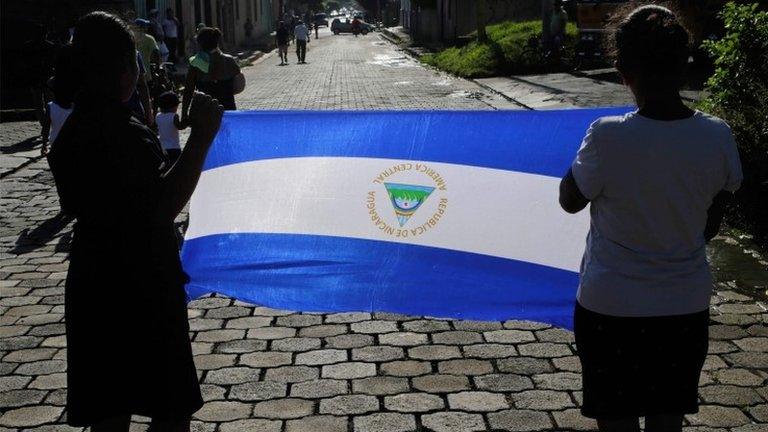Nicaragua releases dozens of prisoners ahead of talks
- Published
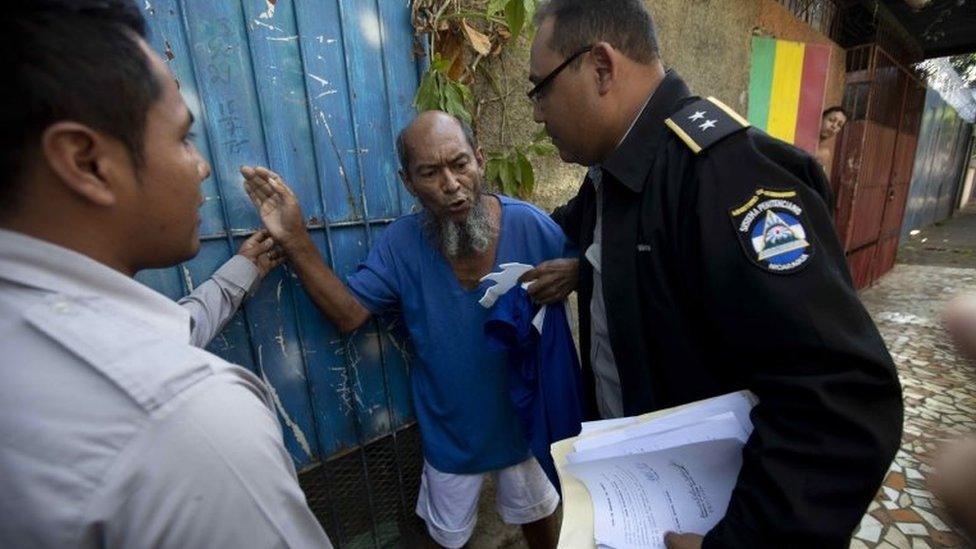
Among those released is marathon runner Alex Vanegas (in blue), who was arrested in November
Dozens of Nicaraguans who were jailed for taking part in anti-government protests have been released, a human rights organisation says.
The number of those released is not yet clear but witnesses said minibuses with inmates had left a number of jails.
The move comes just hours before talks between the government and an umbrella opposition group are due to resume.
The talks had stalled in June amid a crackdown on anti-government protests during which more than 300 people died.
'Not enough'
The protests started in April and lasted for months before fizzling out after more than 700 people were arrested. Human rights group say more than 600 of those remain locked up.

Read more about Nicaragua's crisis:

The release began in the early hours of the morning with some of the prisoners singing the national anthem when they were told they would be allowed to go home.
A judicial source told local media that between 100 and 150 would be moved from jails into house arrest.
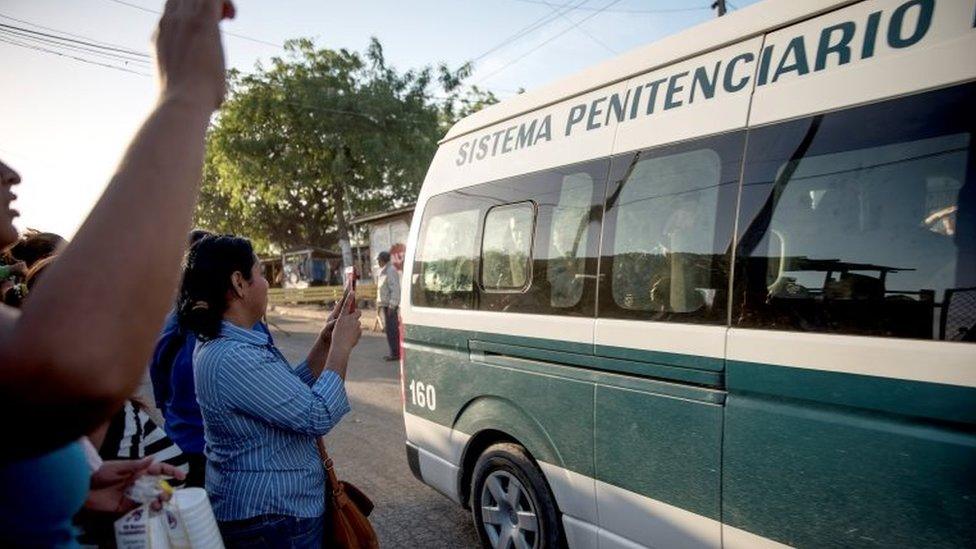
Minibuses carrying inmates left several jails in the early hours of Wendesday
Meanwhile, members of the opposition umbrella group Civic Alliance have arrived for talks on how to put an end to the political crisis.
Ahead of the meeting, they said that their key demand was for all of those arrested for protesting to be released.
Valeska Valle, a member of a student group and one of those representing the opposition at the talks, said that while they welcomed today's move as a positive sign but that it did not go far enough.
"They've been placed under house arrest, we want to insist on their freedom," she said.
The crisis first started in April when demonstrations against changes to the country's social security system widened into calls for the resignation of President Ortega, who has been in power for the past 12 years.
Talks to find a solution to the crisis broke down seven months ago after President Daniel Ortega ruled out calling early elections, which had been the opposition's chief demand.
Since then, hundreds of people have been jailed and opposition activists speak of "persecution" and "the most severe crisis in generations" for human rights.
WATCH: Nicaragua's human rights 'in crisis,' says Maradiaga
- Published19 February 2019
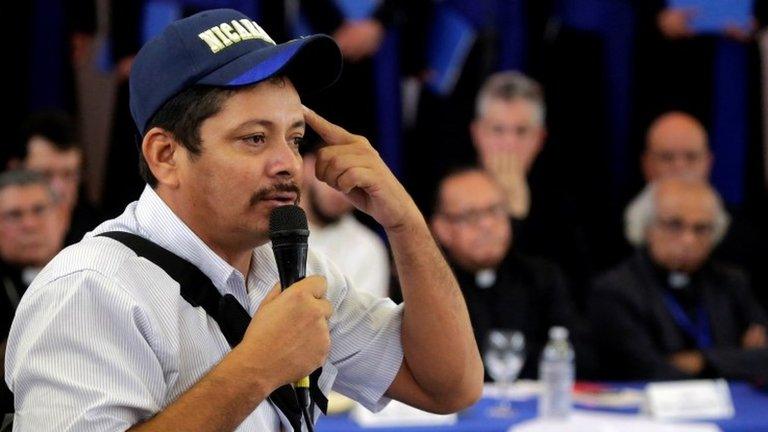
- Published21 January 2019
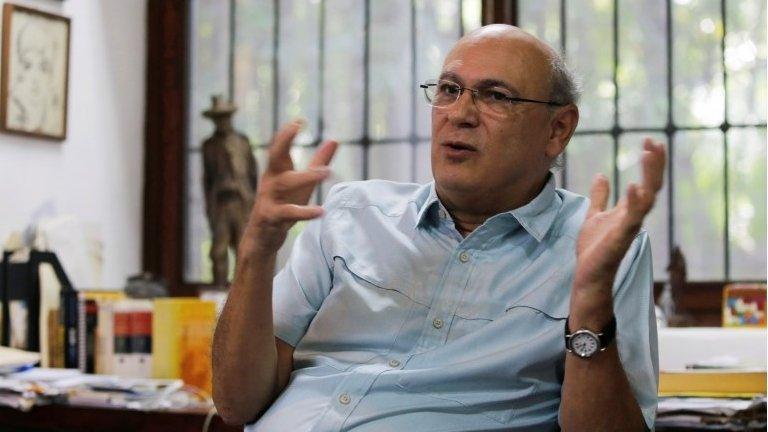
- Published16 December 2018
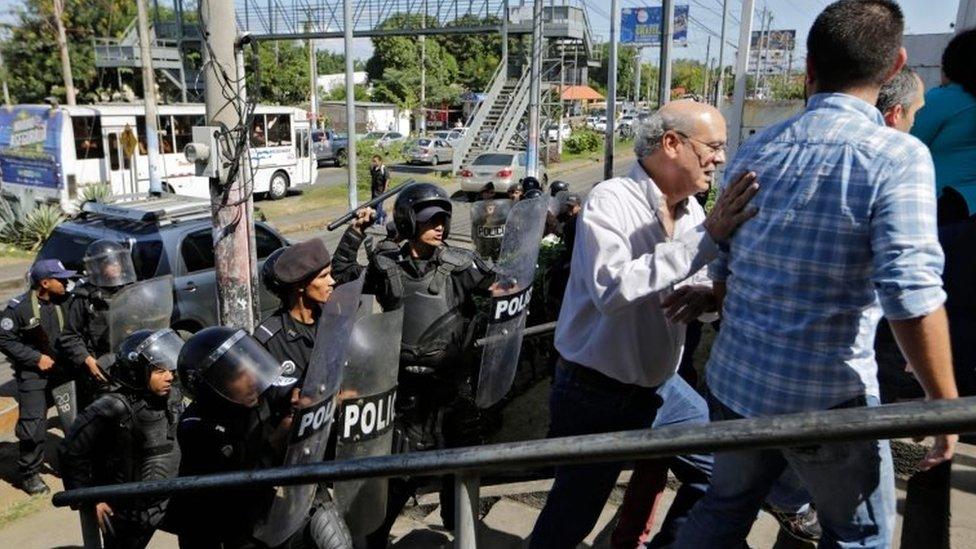
- Published27 November 2018
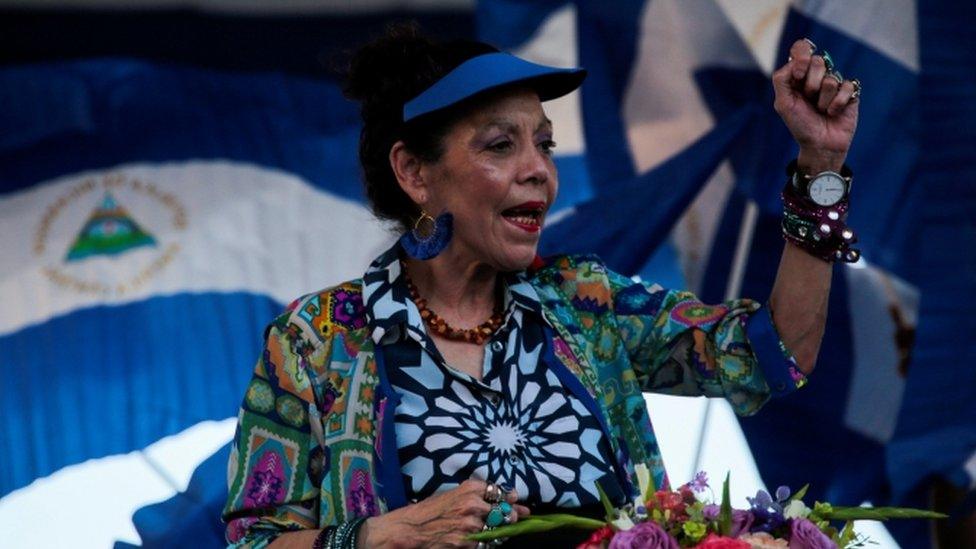
- Published16 October 2018
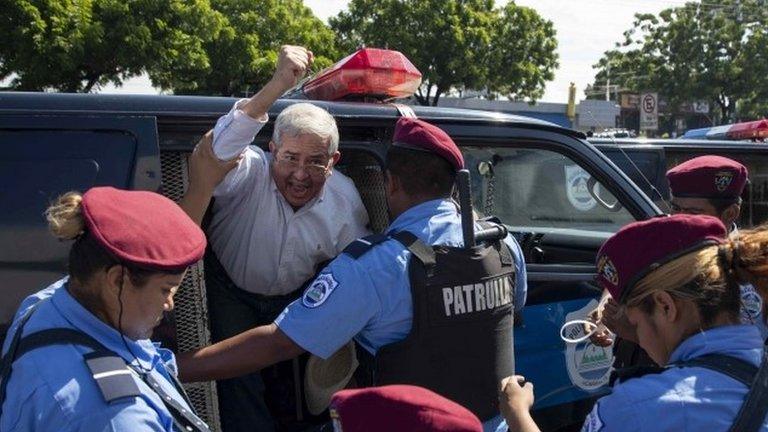
- Published25 September 2018
